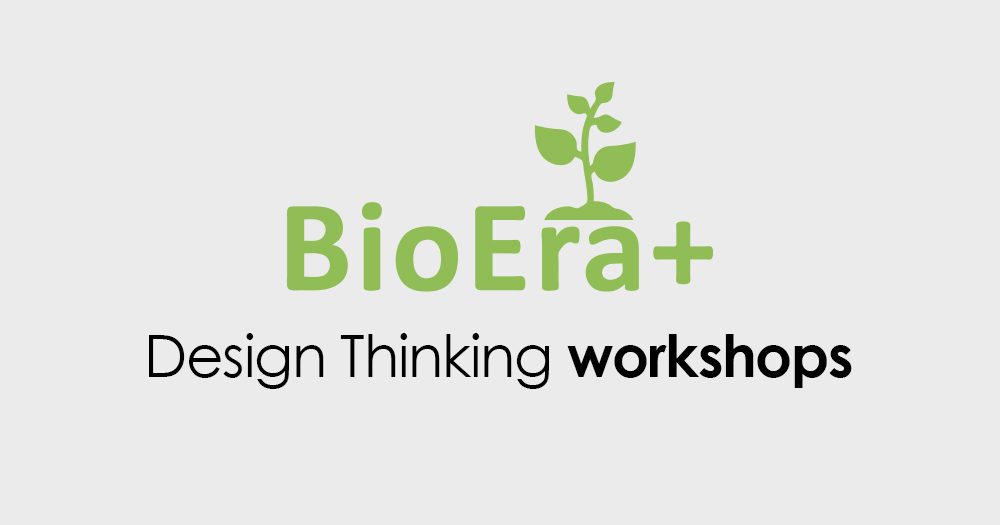

Design Thinking workshops
One of the objectives of the BIOERA+ project is to facilitate and strengthen the teaching process by providing teachers with Design Thinking tools, which allow both to stimulate students’ creativity and give them a sense of empowerment, and also to engage teachers to a greater extent during workshops and problem-solving activities.
The process
Design thinking is a method of creative problem-solving developed and first used in the 1960s in the United States. Its goal is to generate innovative, creative solutions to problems by following a 5-step process:
Phase 1: Empathy, consisting in the deepest possible understanding of the needs of the people for whom the solution is being designed.
Phase 2: Defining the Problem, which involves identifying, naming, describing and understanding the problem to be solved.
Phase 3: Generating Ideas
Phase 4: Prototyping
Phase 5: Testing
Workshops at universities
Until the end of June 2022, M-Powered will be conducting Design Thinking workshops for each of the partner universities. Lecturers and students will not only have the chance to learn the method, but they will implement the method while working on specific problems that emerged during the pandemic years in the following areas: teaching methods and techniques, motivation, assessment in online and blended learning.
The first workshop took place on February 14-16 at the University of Agriculture in Kraków, Poland. The empathy phase revealed many of the students’ needs with regard to building relationships in the peer group and with lecturers, approaches to students’ evaluation and assessment, and motivating methods. This phase resulted also in identification of the lecturers needs, and it was established that fulfilment of those needs greatly affects the quality of work and the level of job satisfaction. The next phase, i.e. Defining the Problem phase, allowed to narrow down the workshop activities to work on methods and techniques of teaching, and these issues were later addressed in the prototyping and testing phases.
The effects of these workshops will form the basis for writing a manual of best practices in teaching methodology, envisaged as one of the Project results.

















